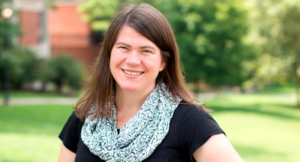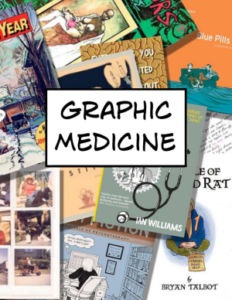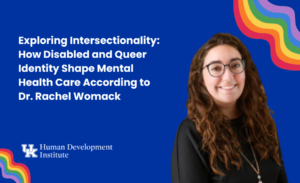Health
Many people with disabilities experience significant disparities in health when compared to people without disabilities. HDI efforts seek to address this through research, training, capacity building, and advocacy at the individual, community and systems level. For more information, contact: Kristen Dahl.
Projects
Asthma Education
In partnership with the Kentucky Asthma Management Program at the Kentucky Department for Public Health, ...
Community Health Workers
Community health workers (CHWs) support people and communities across Kentucky to access resources, including quality ...
Disseminating PCORI Results about Disabilities to African American and Hispanic Expectant Parents
This project will focus on building capacity tor the dissemination at Patient Centered Outcome Research ...
Leadership Education in Neurodevelopmental Disabilities (LEND)
The Human Development Institute (HDI), Kentucky’s University Center on Disability, is administrator for a five-year ...
Lettercase
As the nation's clearinghouse & comprehensive training center for sharing accurate, balanced, and up-to-date information ...
Merge Project
The Merge project will strengthen the existing training framework serving Kentuckians with co-occurring mental health, ...
Preservice Health Training Project
The Human Development Institute has developed, in collaboration with families, consumers, and medical, nursing, and ...
RETAIN Kentucky
The Kentucky Department of Workforce Investment, University of Kentucky Human Development Institute, and other committed ...
Special Olympics Kentucky’s Healthy Athletes Program
Special Olympics International began the Healthy Athletes Initiative in 1997 with the mission is to ...
Women’s Health & Disability
In partnership with the Kentucky Women’s Cancer Screening Program, this project is working to improve ...
Products
Healthy for Life® The Healthy for Life (HFL) community nutrition program was created by Aramark and the American Heart Association to help individuals discover, choose and prepare healthy food using science-based resources. The purpose of the Healthy for Life community nutrition engagement program is to provide food discovery experiences and nutrition education to community members. The primary target is individuals responsible for meal preparation in their homes. Universal Design principles were applied to the Healthy for Life program to make lessons flexible, intuitive, equitable, and appropriate for all. Adaptations included adding emoticons and graphic representation of questions to the evaluation surveys. In addition, principles were applied to the program through the creation of supplemental resources such as PowerPoint presentations, visuals, videos, handouts, hands-on activities, redesigned recipes with images, and added participant-driven specific goals to help direct sustainable behavior change. The supplemental materials to this program market the community nutrition engagement program to an inclusive audience, intentionally including individuals with physical and/or cognitive disabilities. You can become a Healthy for Life facilitator – for FREE! Sign up to access the presentations, workshops, and connect with other facilitators across the country. Detailed lesson plans, recipes, and videos are provided to those who register. Put this curriculum and these resources to good work in your community! Once you become a registered Healthy for Life facilitator, be sure to check out LIVE: Live Inclusive Virtual Events & Programs to learn how to successfully plan, design, and implement a Universally Designed HFL program. Mobile Kitchen Series The Human Development Institute‘s Kentucky Inclusive Health Collaborative collaborated with American Heart Association Kentucky community impact director and local health department to offer an inclusive Mobile Kitchen Series based on the American Heart Association’s Simple Cooking with Heart Program. Universal design strategies were implemented in the program planning and delivery of healthy cooking classes. Recipes and lessons were created with inclusive considerations. Staff were educated on adaptive and universal design strategies for teaching the classes. Recruitment for the series was widespread with targeted outreach to individuals with intellectual and developmental disabilities and offered at a community public library. The class was offered free of charge and provided the opportunity to learn basic cooking skills while trying new foods and extra ingredients to prepare the meal at home. Twenty-two participants attended the pilot program with a 50:50 ratio of people with disabilities to those without. 89% of participants agreed that they were
Dr. Lindsay Ragsdale shares how to help ease the concerns of parents and children getting COVID-19 vaccines by creating a space that is welcoming and fun. She gives parents ideas for how to learn more about the vaccines and comfort their children, and she gives other doctors ideas for how to create a welcoming environment for kids, including those with disabilities.
The Kentucky Disability and Public Health in Higher Education Project focuses on building leadership opportunities, developing content, and information sharing for students with disabilities and students in public health. Watch this video to learn more.
This document provides tips for working effectively with ASL Interpreters in a presentation setting.
An overview of medical discrimination and healthcare inequities experienced by people with disabilities. Goals and objectives for the newly established Center for Dignity in Healthcare for People with Disabilities will be presented along with the Center’s five areas of focus: Prenatal diagnosis of disability, suicidality among people with disabilities, aging and end-of life care with a disability, discrimination in organ transplantation, and COVID-19 response related to the disability community. Seemingly diverse, these areas of focus share the same emphasis on addressing the bias and stigma about disability that results in poor health outcomes for the disabled community.
The purpose of this guide is to increase awareness of recreation opportunities for individuals of all abilities across Kentucky, as well as general resources that serve people across the nation. This guide is updated frequently as new opportunities become available across the state.
Join Morgan Turner, Health Education Specialist of the Inclusive Health & Wellness Initiative for the video series Morgan’s Musings. In this informational series, Morgan interviews self-advocates, professionals, and family members of individuals with disabilities to gain a unique insight into their perspective and experience. Topics focus on leadership, self-advocacy, and disability as they relate to health.
Project CHEER worked with a team of self-advocates in partnership with Disability Don’t Mean Can’t, a fitness and motivational resource developed by Kentucky native, Michael Carter, to create a comic book called Busting Down Barriers! The storyline was developed in collaboration with the real-life characters. The easy to read comic addresses different areas of health including how to be a strong self-advocate, access to healthy resources and how to achieve personal health goals. The comic is available in both print copies and an online video.
Fact sheet on opioid use and disability, using national and Kentucky statistics.
2019 National Core Indicators KY health data. This file includes health resources in Kentucky.
This manual was designed primarily for use by people with disabilities. We hope that it is also useful for families, as well as service coordinators and providers who directly assist families and individuals with disabilities. https://resources.hdiuky.org/
News
Dr. Meredith named Development Director at GSF

Before Dr. Stephanie Meredith was speaking at conferences and creating training materials for doctors, she was an advocate for her son, Andy. In the years ...
HDI receives WITH Foundation Grant to support work in Graphic Medicine

Thanks to a grant from the WITH Foundation, HDI will have the opportunity to create new resources in the emerging field of graphic medicine. “Graphic ...
Exploring Intersectionality: How Disabled and Queer Identity Shape Mental Health Care According to Dr. Rachel Womack

Research has shown a strong connection between queer identity and disability—a connection Dr. Rachel Womack is deeply familiar with. “The research shows that folks with ...